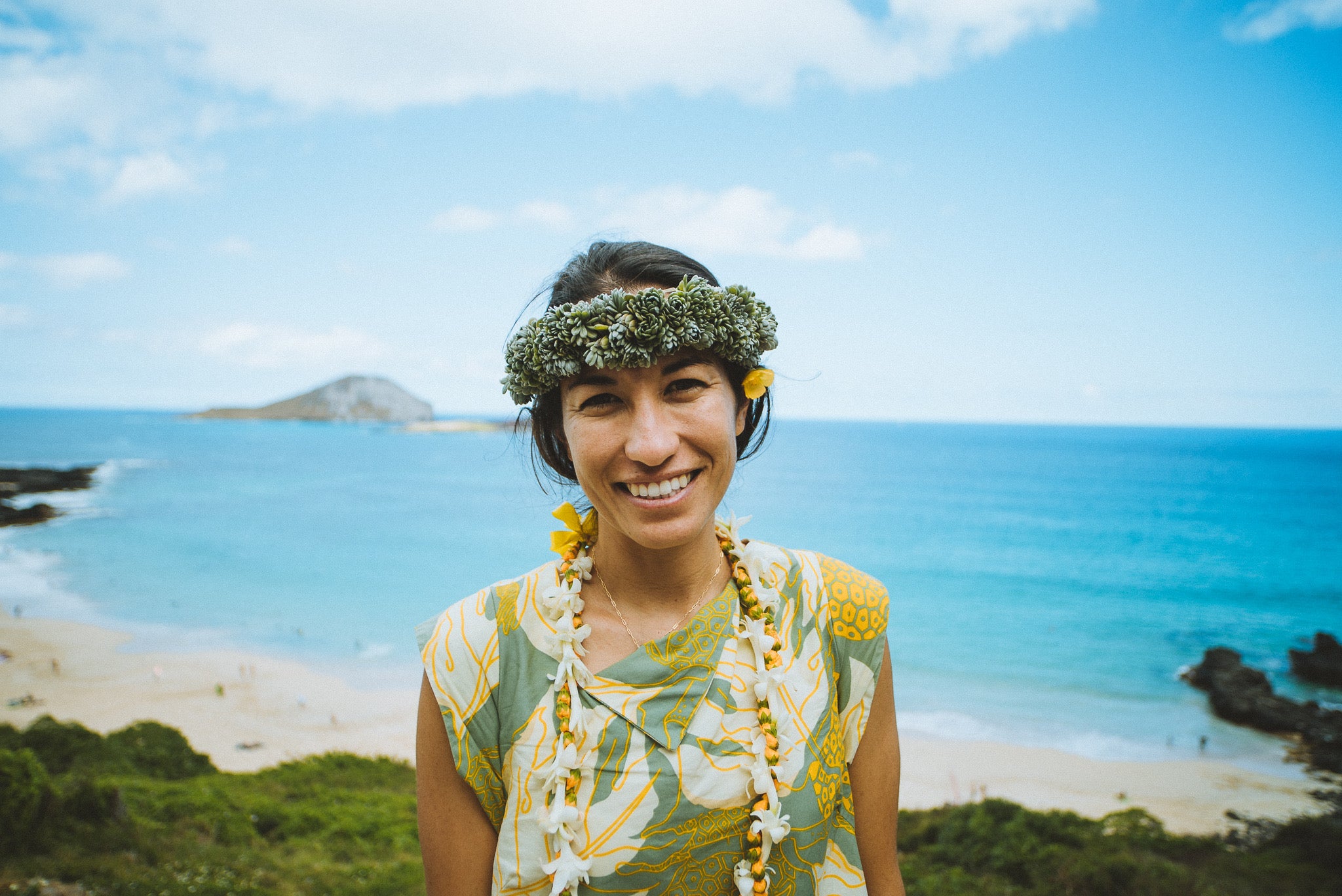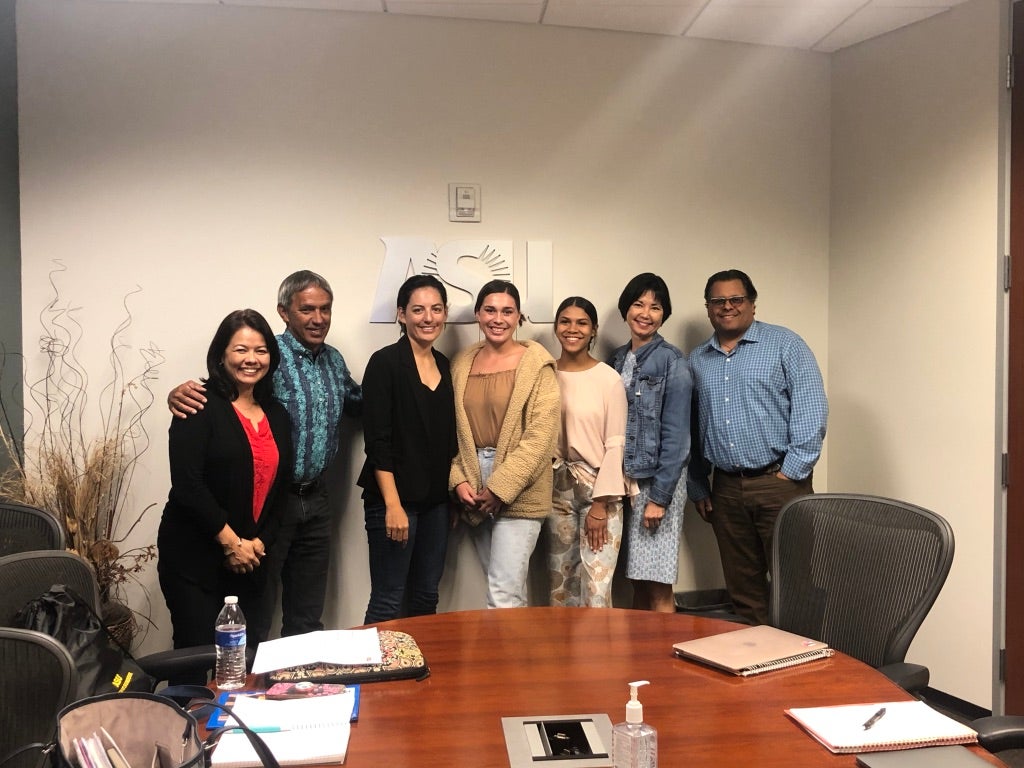Arizona State University’s Bryan McKinley Jones Brayboy has a bevy of job titles and picked up a new one in February.
Brayboy was named the university’s vice president of social advancement. The new title carries with it a lot of national and global responsibilities and duties, and it’s something that Brayboy is eager to get in motion.
“I’m very excited about this portfolio because it allows me to take on new challenges that are near and dear to my heart,” said Brayboy, President’s Professor, director of the Center for Indian Education and ASU’s senior adviser to the president on American Indian affairs. “This work is an opportunity for ASU to continue living our charter. The social advancement aspect is crucial. Part of my role is to convene people and to bring our vast intellectual and research power to assist in helping create the conditions for a better society.”
Brayboy said the new focus area of his job will be to build and strengthen capacity on many levels. He said this starts with individuals, who should develop their personal and academic skills so they can create futures of their own making. He also wants other institutions to utilize ASU’s resources to make themselves stronger in order to better serve their constituents, and for the wider society to create opportunities of racial and economic equity.
ASU President Michael Crow chose Brayboy for the role, saying his reputation as a convenor for facilitating conversation and bringing people together made him the ideal candidate for the job.
"As a New American University committed to being of service, we take seriously our responsibility to support the success of communities, both near and far," Crow said. "ASU's bank of expertise, resources and learning opportunities can help communities to craft well-designed, effective solutions. We want to convene and help empower individuals to achieve their goals and live their best lives."
Brayboy’s new responsibilities will cover a broad spectrum of transformational initiatives, including research projects, sustainability practices, academic and nonprofit collaborations, and social advancements with national and global impacts.
These are items that fall under ASU’s charter and leverage almost all eight of the university’s design aspirations, Brayboy said, which essentially ask the university to assume fundamental responsibility for the economic, social, cultural and overall health of the communities it serves.
The ASU Charter on Cady Mall on the ASU Tempe campus explains the university's mission to every student, faculty and staff member, and guest. Photo courtesy of ASU News.
One of the larger objectives before Brayboy is to enact ASU’s vision for work in Hawaii, where a number of partnerships and research projects regarding food systems, oceans and education are already taking place.
“We get asked: Why is ASU in Hawaii? There are several reasons. Hawaii is a clear indicator and harbinger for what will happen in the future regarding our planet. Hawaii is a vibrant state that is, in many ways, an incredible place to explore the planet,” Brayboy said. “The geography includes everything from the top of a mountain to the bottom of the ocean floor and everything in between. It contains vibrant reefs, interesting food systems, unbelievable cultural knowledges and fantastic opportunities for us to learn. And contribute. If we’re really going to engage in — and be guided by — research with local people and explore planetary health and its intersections with rich cultural knowledges, this is the setting for us to be able to do that. The partnerships and relationships we have in Hawaii are so enriching. It goes both ways.”
One place where this is happening is ASU’s Center for Global Discovery and Conservation Science, which launched in Hawaii in 2019 and is led by professors Greg Asner and Robin Martin in the School of Geographical Sciences and Urban Planning. They have been working to document and save Hawaiian coral reefs, particularly during the 2019 Pacific Ocean warming event, to help hundreds of students and researchers with data from the largest constellation of satellites currently in orbit.
Asner and Martin aren’t the only professors working in Hawaii. ASU last month hired Haunani Kane, a Native Hawaiian scholar who will bring her extensive knowledge in climate science to the School of Geographical Sciences and Urban Planning and the Center for Global Discovery and Conservation Science as an assistant professor.
Haunani Kane was hired in 2020 and will bring her extensive knowledge in climate science to ASU as an assistant professor. Photo courtesy Haunani Kane.
Kane’s research combines coastal geomorphology, paleo-environmental reconstructions, spatial analysis and the perspectives of a Native islander to investigate how islands, reefs and island people are impacted by changes in climate. As a National Science Foundation postdoctoral research fellow, she has spent nearly 200 days at sea aboard both traditional sailing and modern research vessels. She is working on a project in Papahānaumokuākea Marine National Monument, a cultural and natural UNESCO World Heritage site in Hawaii.
ASU Prep Digital, an accredited online school serving students in grades K–12 and school partners around the world, recently helped Kamehameha Schools and Hawaii’s Department of Education build a personalized learning model to allow approximately 6,000 students to continue their education through the pandemic. The coursework emphasizes STEM exercises, language and culture.
According to Lisa Edgar, chief partnership officer for ASU Prep Digital, her division was charged with building this model within a hundred days. Not only did they make their goal, but she said students are thriving under this format.
“When the pandemic hit, we partnered with these schools to help ensure their students could continue their learning in a flexible and personalized approach,” Edgar said. “Not only are we helping to provide learning continuity for these students, but we are also giving students an opportunity to be exposed to university-level courseware early on in their high school career.”
Brayboy said this is the perfect example of social advancement.
“ASU Prep Digital built a school for the immediate needs borne of a global health pandemic. But they did so in a way that addresses the mid-term impacts of providing students with opportunities to also earn college credits and an even longer-term benefit of being prepped to complete a college degree in an increasingly complex society,” Brayboy said. “That’s part of the work of social advancement. It’s great for the individual students, it dramatically improved the institution’s ability to meet the educational needs of its students, and it created a small sense of equilibrium in communities and a society facing massive health disparities.”
The university is also building and investing in longer-term initiatives in Hawaii, including tagging along on the Polynesian Voyaging Society’s worldwide canoe trip that will visit approximately 45 countries, including 100 Indigenous territories and archipelagos. The 41,000-nautical mile circumnavigation of the Pacific Ocean is expected to take 42 months.
ASU is partnering with other organizations to support the creation of a “Third Canoe” — an online platform that will allow educators and students across the globe to virtually participate and learn. The idea is to draw attention to the voyage and inspire people to make good sustainability choices for a healthier planet.
Generally, there are only 12 to15 individuals on any leg of a sail. The Third Canoe will create virtual reality experiences that will allow millions of people to experience part of a voyage, with the possibilities of virtual labs and educational experiences, linking learners across the globe around the common theme of planetary health and the future of the planet.
“The opportunity to leverage our online learning assets with our creativity and innovation with the courage and vision of PVS and its navigators advances our understanding of the Pacific Ocean, a 10 million-square-mile body of water, and it allows us to connect people from Arizona to Tahiti to Chile on this sail,” Brayboy said. “In that effort, we advance our collective understanding of what decisions we can make as individuals and organizations — as a broad global community — to be better stewards of the home we all share: Mother Earth.”
Jody Kaulukukui, senior advancement officer for the ASU Foundation who is based in Hawaii, said, “Bryan Brayboy is the ideal choice for this position. He understands that relationships are important for an island community, and he works hard to be a trusted and valuable partner.” And of Kaulukukui, Brayboy said, “She’s the secret sauce to our efforts. None of this happens without her wisdom and guidance.”
ASU's Bryan Brayboy (far right) meeting with a contingent of representatives with the Polynesian Voyaging Society in Hawaii during a three-day meeting at ASU in February 2020. Photo courtesy of Bryan Brayboy.
Closer to home, Brayboy will work on:
Advancing the overall mission of “To Be Welcoming,” an online curriculum developed by EdPlus at ASU — now residing in Learning Enterprise — for all Starbucks employees that is intended to drive reflection and conversation on the topic of bias. The curriculum has been adapted for use by ASU students and the community at large. It helps individuals work through challenges from perspectives of curiosity and understanding, Brayboy said: “Employers and society want individuals who seek to understand the experiences of those different than they are. It’s good for everyone.” He is working closely with the School of Social Transformation (Jessica Solyom and Mako Fitts Ward) on this effort. Brian Nethero (EdPlus at ASU), Kim Merritt (ASU Learning Enterprise), and Lisa Young (Office of University Affairs) have also been crucial to this effort, Brayboy said.
Coordinating with Sukhwant Jhaj, vice provost of academic innovation and student advancement, and dean of University College; Cassandra Aska, dean of students; Melissa Pizzo, associate vice president of Enrollment Services; and Jacob Moore, assistant vice president for tribal relations, to build a data-driven model of success that will help the university to make better decisions in serving Indigenous students. If successful, they will use the model to serve other populations at the university.
These new duties sound like a lot of responsibility, but Brayboy said his job is really simple.
“I’m a facilitator of other peoples’ success — I’m not the reason for their success,” he said. “My job is to make sure they have what they need, get out of their way and let them do their good work. How great is that?”
Top photo: President's Professor and new Vice President of Social Advancement at Arizona State University Bryan Brayboy poses for a portrait outside his home in Phoenix on Feb. 16, 2021. Photo by Deanna Dent/ASU News
More Environment and sustainability

Homes for songbirds: Protecting Lucy’s warblers in the urban desert
Each spring, tiny Lucy’s warblers, with their soft gray plumage and rusty crown, return to the Arizona desert, flitting through the mesquite branches in search of safe places to nest.But as urban…

Public education project brings new water recycling process to life
A new virtual reality project developed by an interdisciplinary team at Arizona State University has earned the 2025 WateReuse Award for Excellence in Outreach and Education. The national …

ASU team creates decision-making framework to improve conservation efficiency
Conserving the world’s ecosystems is a hard job — especially in times of climate change, large-scale landscape destruction and the sixth mass extinction. The job’s not made any easier by the fact…





